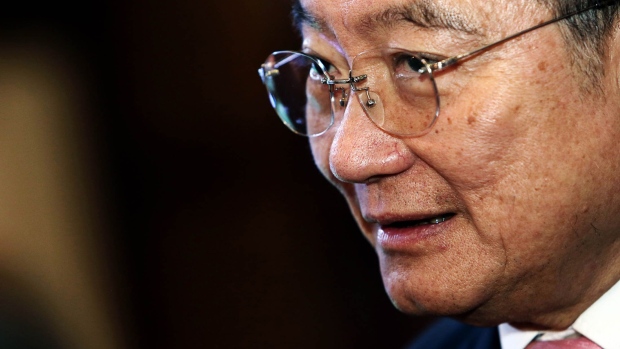May 10, 2024
Thai Billionaire’s Frasers Property Earnings Drop by 82%
, Bloomberg News

(Bloomberg) -- Frasers Property Ltd., the developer controlled by Thailand’s richest man Charoen Sirivadhanabhakdi, posted a sharp drop in profit for the first half of its fiscal year, as it continued to bear the brunt of a global real estate downturn and high borrowing costs.
The Singapore-based property conglomerate recorded a net profit attributable to common shareholders of S$35.8 million ($26.4 million) for the six months ended March 31, it said in an exchange filing late Friday. That’s an 82% plunge from a year earlier, and compares with a S$74 million loss in the prior six-month period. Revenue slumped 20% year-on-year to S$1.55 billion.
Singapore’s third-largest listed developer, which earlier issued a profit warning, said the drop was mainly due to higher interest rate expenses and unrealized fair value losses and impairment of its UK commercial properties. It’s also facing a slowdown in Singapore’s residential market. Net profit excluding fair value changes and exceptional items fell 83% year-on-year to S$33.4 million.
“Continual market headwinds have created ongoing challenges for us,” said Panote Sirivadhanabhakdi, the group’s chief executive officer and Charoen’s son, in a statement, adding that the group is seeking to increase development exposure over the medium and long-term.
Speculation has grown about the fate of the company, controlled by the Sirivadhanabhakdi family’s TCC Group conglomerate. The billionaire, who is also Frasers’ chairman, denied in January that the firm’s owners will sell their stake after a Dow Jones report that divestment was being considered as part of a strategic review.
Frasers has focused in recent years on mega-projects, including a multi-billion dollar mixed-use project One Bangkok. It’s jointly developing the property with a TCC subsidiary in Thailand’s capital. It’s also working with other developers in a recent bid to build an alternative business district in Singapore’s west. The firm has also divested assets, mainly in Singapore, and said it recycled S$1.1 billion of capital in the first half.
Shares of the company have more than halved from its all-time high in 2018, and are now trading near a record low. The stock has dropped 9.6% this year through Friday’s close, compared with a 1.6% gain on Singapore’s benchmark equity index.
©2024 Bloomberg L.P.


